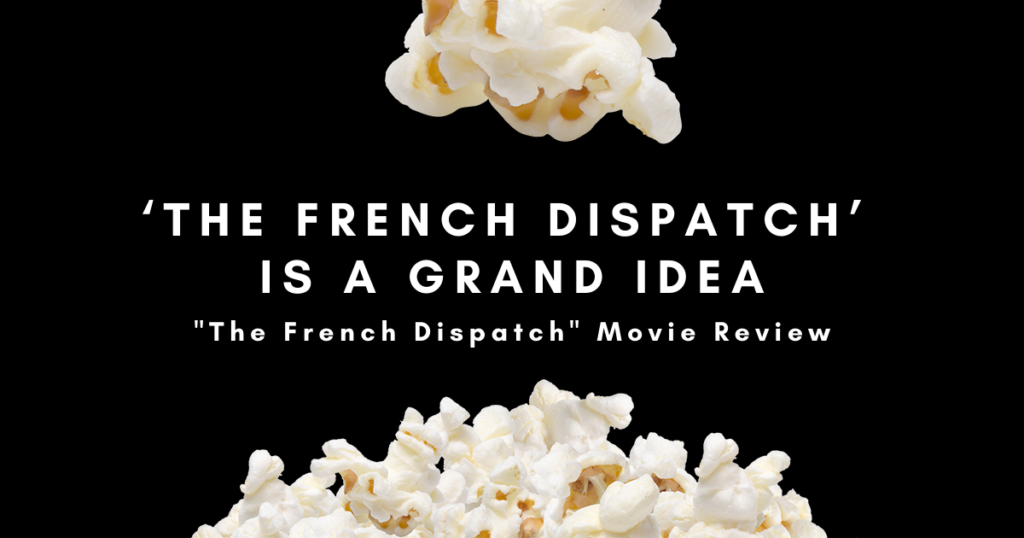
Story and image by JAVIER DOSAMONTES
Pima Post
“THE FRENCH DISPATCH”
DIRECTED BY: WES ANDERSON
RATING: R
RUN TIME: 1 HOUR, 48 MINUTES
SHOWING AT THE LOFT CINEMA
Wes Anderson’s “The French Dispatch” began showing at The Loft a little over a week ago, and I have watched it twice.
Not because I enjoyed the movie, but because I wanted to figure out a way to talk about it.
Anderson is an all-time great filmmaker. His résumé is full of cinematic gems like “The Royal Tenenbaums,” “The Life Aquatic with Steve Zissou,” “Fantastic Mr. Fox” and “The Grand Budapest Hotel,” among many others.
Everything he does is either a classic or a cult classic, but something’s off on this one.
The film’s concept — while ambitious — should work under the direction of Anderson. It’s an ode to The New Yorker and it contains four different stories to mimic an issue of a magazine.
However, the execution of the structure is what dooms the movie: There’s an overall arc, which is about life at The French Dispatch (publication name) and its founder, Arthur Howitzer Jr. (Bill Murray).
This arc explores the relationships between Howitzer Jr. and his writers (played by Owen Wilson, Tilda Swinton, Frances McDormand and Jeffrey Wright).
It’s a very superficial exploration, though, because there’s another arc that wants to explore each of the four writers.
Then each of the writer’s arcs are explored through the aforementioned four stories they fictionally wrote. And each of the four stories is loosely based on real events and people in world history — like “Revisions to a Manifesto” on the “May 68” protests, for example.
Each of the stories is also meant to be satires of those past events, current events and possible future events.
Everything in Anderson’s filmmaking is packaged in a stunningly colored aesthetic and cinematography. He is also a master at directing an ensemble cast, and navigates complex storytelling with his trademarked charming and humoristic style of dialogue.
Yet this film starts and stops too many times to give it an overall flow or rhythm.
Each story is great on its own if consumed as an isolated film. This is true especially in “The Private Dining Room of the Police Commissioner,” where Wright plays a character based on James Baldwin and A. J. Liebling. But Anderson made another bold choice that ruins the flow within each story.
The movie goes from black and white to color every couple of scenes — a salute to classic cinema, and perhaps a visual metaphor as well.
It’s a great idea … but the execution doesn’t work. It’s clunky and distracting. The constant changes alter the mood instantly, adding an additional layer to an already layered film.
“The French Dispatch” is an ambitious idea — daring and eccentric — and I respect that. It’s like when the 2020 Rockets traded their centers to make Russell Westbrook (a point guard) their de facto center.
They’re fascinating propositions at a conceptual level and data suggested it could’ve worked. The players or actors are great at their roles, and the head coach or filmmaker has made unorthodox philosophies work before.
Unfortunately, Anderson’s past filmmaking magic didn’t work with “The French Dispatch,” just like Mike D’Antoni’s sorcery from the “7 Seconds or Less” Phoenix Suns didn’t work with the center-less Rockets.
Both ideas were abstractly revolutionary but did not materialize in real life. They are fun to enjoy as an idea, but in reality that’s all they are.
